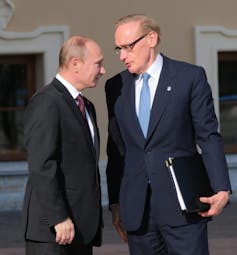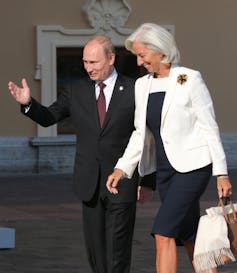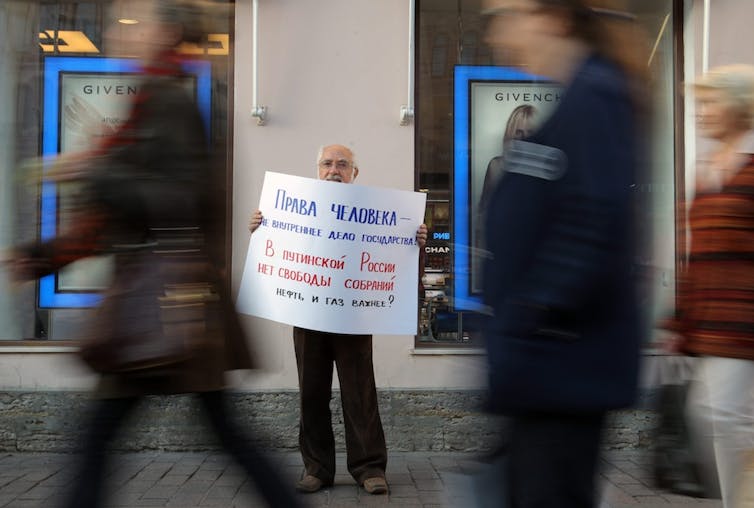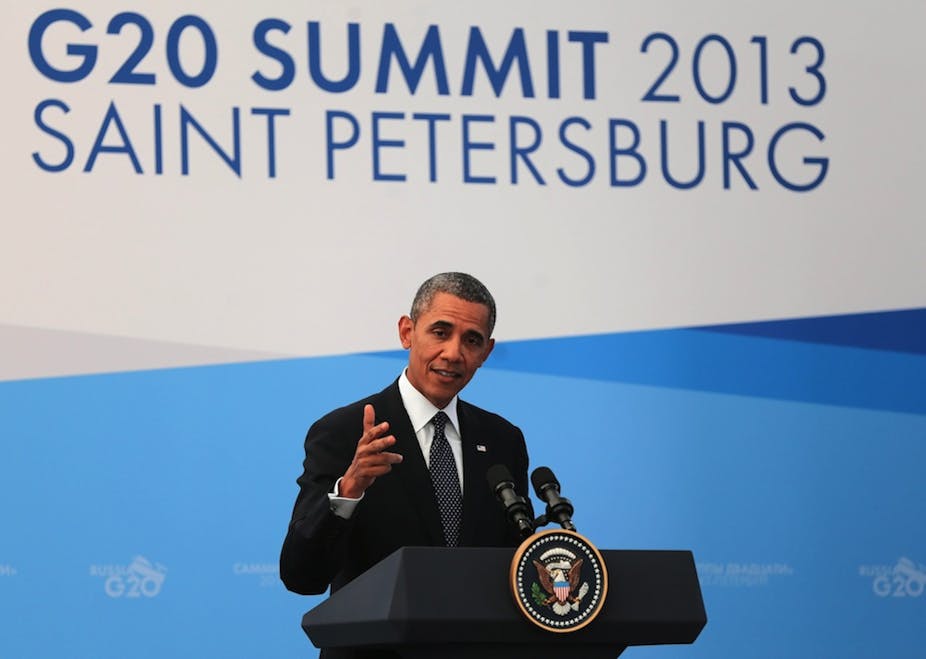The G20 Summit has finished in St Petersburg, and as the hydrofoils pulled away from the shore, thoughts turned to the Brisbane Summit in 2014. Well, mine did. Not many others, I’ll admit. Foreign minister Bob Carr mysteriously cancelled his final leader’s press conference and retired to his villa, leaving me to explain the pressures of the Federal election to Reuters. Awkward.
There is a difference in diplomatic terms between being respectful of Russia’s host year; and being so silent and absent that people think we are departing from our years of patient bipartisan political investment in the G20.
Nevertheless, Australia begins its hosting duties on December 1, and new prime minister Tony Abbott will then make his first global speech outlining our agenda. Australia will be working as part of a troika, with Russia as the past host and Turkey as the host in 2015 (already tagged the RAT pack by Lowy). Our new treasurer, once chosen, will be plunged into the fray of global economic governance.

With all the extra time saved by Carr, I was able to approach a range of G20 Summit veterans and glean advice for Australia for the Brisbane Summit. For example, world G20 expert Domenico Lombardi is the Director of the Global Economy Program at the Centre for International Governance Innovation (CIGI), a Canadian think tank with a global reputation. As well as summing up the impact of the final communiqué, he had some sage advice for Australia to reinvigorate the process. Lombardi sees an important role for Australia in cementing the idea of the G20, still a new group, with different regional actors.
“Australia could not just be the chair of the G20. but could also be the pivot of the G20 for the role for fostering dialogue.”
He reiterated previous public comments about the political capital Australia enjoys, especially since we hosted the G20 Finance Ministers meeting in Melbourne 2006:
“Politically, Australia is heavily invested in the G20 process, as is clear from the last time it chaired the then-still ministerial group. Unlike many other members of the G20, Australia can effectively work as a broker between advanced and emerging economies, especially those from Asia, which is at the heart of the G20’s nature.
"Issues, such as reforming international financial architecture, including the role of recently established organisation like the Financial Stability Board, are likely to receive positive momentum under the Australian presidency.”
Further to the idea of a “honest broker” role in the region, he felt Australia could help bring the International Monetary Fund (IMF) closer to its Asian members, and focus on developing the new role of the IMF. Ambassador Roberto Carvalho de Azevêdo (Brazil) is the new Director-General of the World Trade Organisation, and Australia can support trade outreach to Asia-Pacific, including both developing and developed countries, to gain further impetus and promote the sensible liberalisation of the trade agenda.

Another G20 veteran is Australian former union leader Sharan Burrow, now leading the Labour 20 process. The G20 Leaders’ “informal meeting” with their ‘social partners’ (check out how informal it is on this video), was held on the second day of the G20 Summit. At this session, business leaders (B20) and trade union representatives (L20) presented their recommendations to the G20 Leaders. Her view of the goal for Brisbane was clear:
“The challenge will be national commitments to a new investment model that draws a line between speculation and investment and ensure patient capital triumphs over speculation”.
The civil society advocates who have been working hard to influence the G20 process for many years were very positive about Australia’s host year, expecting more transparency and more tolerance for civil society actors. John Ruthrauff is from US NGO peak Interaction. He leads the G8/G20 work for the American NGO sector as well as supporting the global coalition. His advice to civil society is work hard in their own country, working constructively and early on in the process with their sherpa and finance minister to influence ideas, language and implementation of promises by leaders.
Mr Ruthrauff believes that the best thing Australia could do is to continue working on what the G20 has been successful at. “Deepen the work, don’t spread it thinner. We all have limited resources and limited time to work on the G20 agenda, and the best thing to do is focus on success.” For his money, Ruthrauff supports the anti-corruption and financial inclusion agendas. But he adds that “Australia has to pick what leaders are excited about, and senior staff have to put their own energy into the outcomes”.

Kate Dooley, global G20 lead for Save the Children UK, is focused on the big picture:
“We want to see the G20 grasp the need for a new global economic paradigm in which rather than just pursuing growth for growth’s sake, the objective is sustainable and inclusive economic growth,where the benefits of that growth are shared more equitably in G20 countries and beyond. The big gap on the current agenda is inclusive growth - social equity is the missing link across the G20.”
Steve Price-Thomas is the lead on G20 and BRICS issues for the Oxfam family, based in Vietnam, and a go-to expert. Oxfam was running hard on Syria and tax evasion at the Summit, but Steve took a moment to say that Oxfam would like to see a clear focus on overcoming poverty and inequality and ensuring food security for all in Brisbane. He would also like to see a focus on the G20 “delivering on its commitments, with no more empty promises”. Oxfam would like to see a constructive and inclusive civil society process.
Apart from Sharan Burrow, there was a strong Australian presence in the Media Centre, as Tim Costello from World Vision Australia and Cassandra Goldie from the Australian Council of Social Services (ACOSS) were in St Petersburg to receive the baton from the Russian Civil20 to the Australian C20 process.
In Reverend Costello’s ideal Summit in Brisbane:
“We would see C20 leadership on the stage at the informal briefing of the L20 and B20 with the leaders. We can achieve this without any mission shift. As the jobs and growth agenda is now accepted as inclusive, then this has a clear social and equitable dimension.”
Costello notes that in a debate between Sharan Burrow and British prime minister David Cameron that morning, Burrow had talked about a recent poll that showed people in G20 countries feel abandoned and a sense of social despair due to unemployment. Cameron responded that the UK had created three million jobs, and “we did that with labour flexibility”.
Costello states: “My hope is that we have this debate. Protectionism is the great enemy of jobs and growth and is driven by the plight of the poor within developing countries”.
Cassandra Goldie of ACOSS wants the debate to focus more on the plight of the poor within and between countries, and how to ensure growth particularly benefits those who have the least. Otherwise, as she says “what is it all about?”
There you have it, excitement, energy, pivotal dialogue, deeper debates, and no empty promises in Brisbane, November 2014. Over to you, Mr Abbott.

